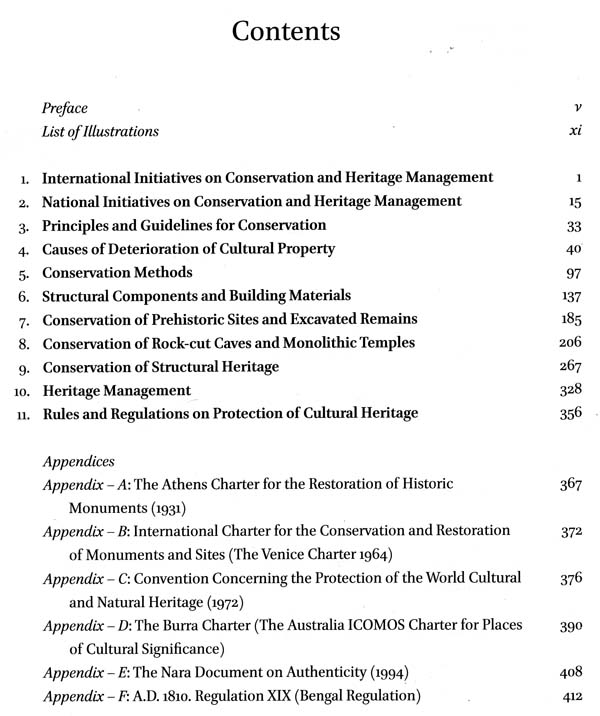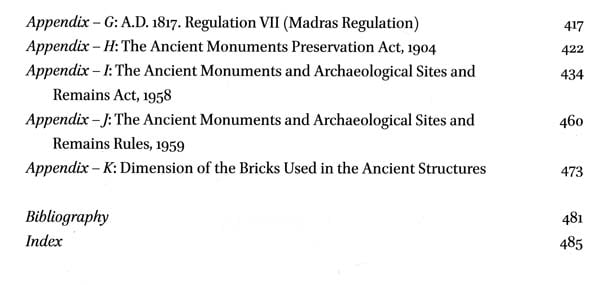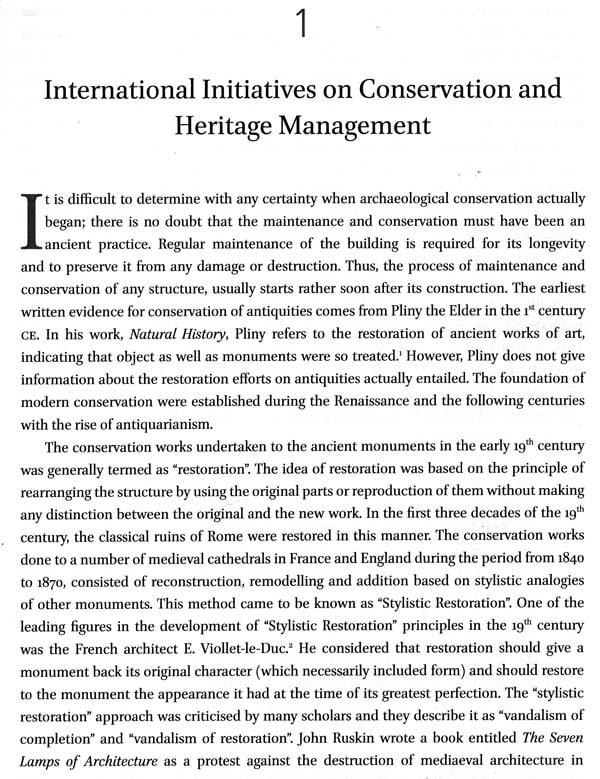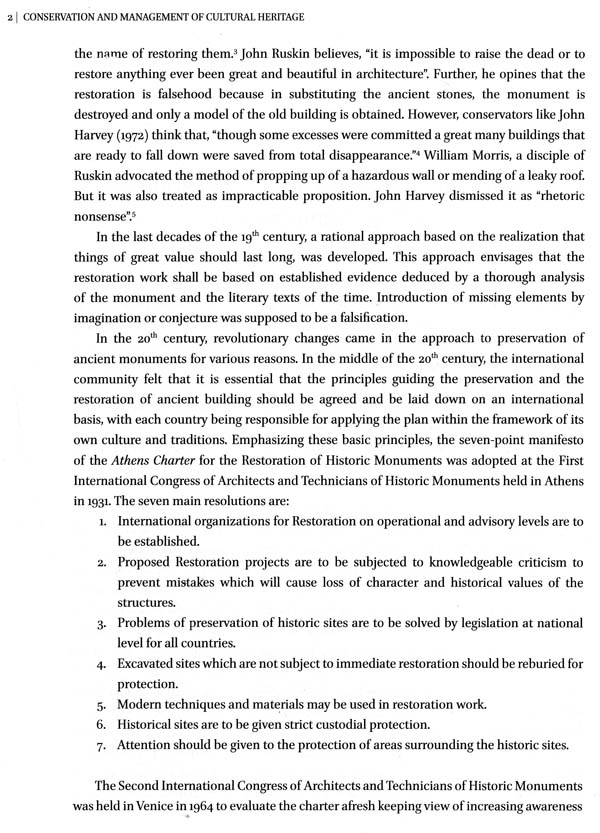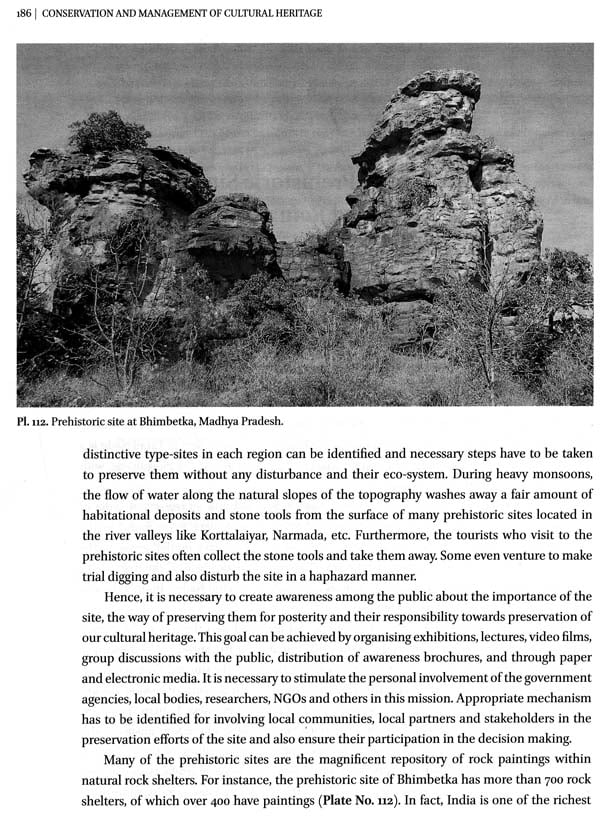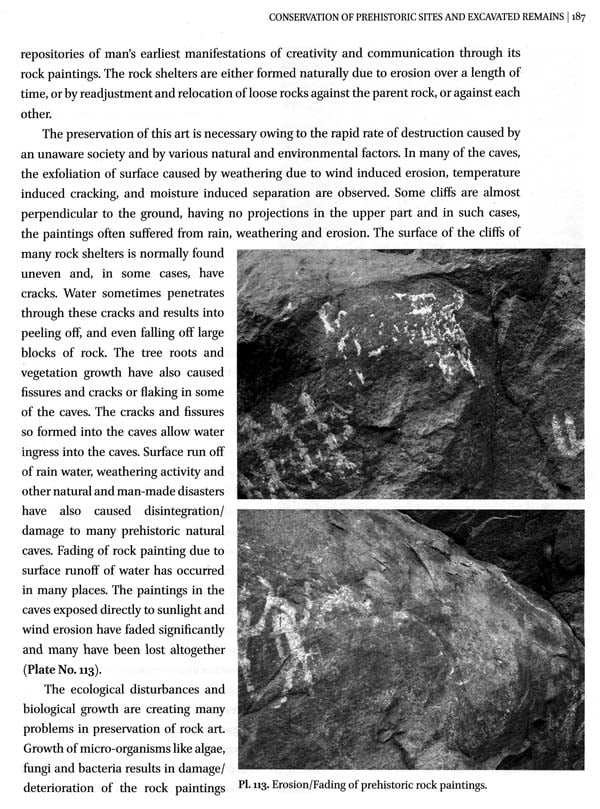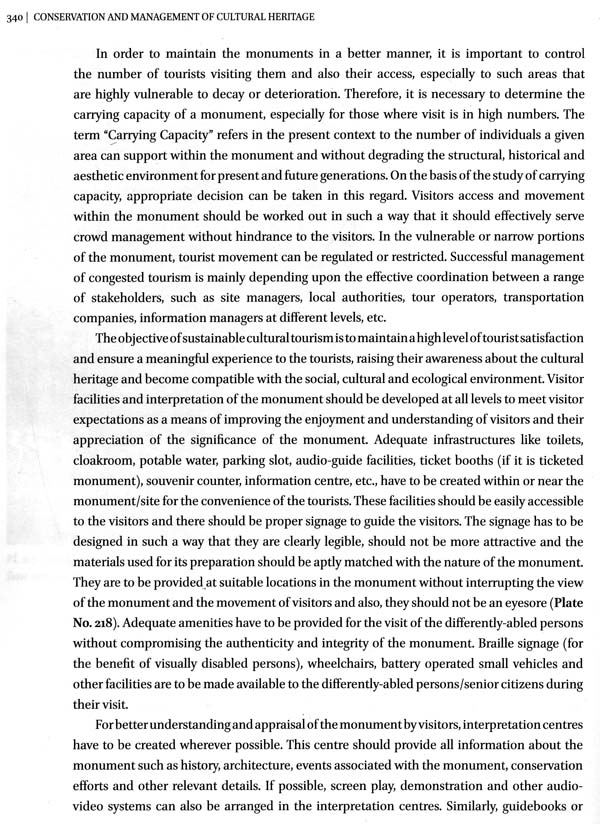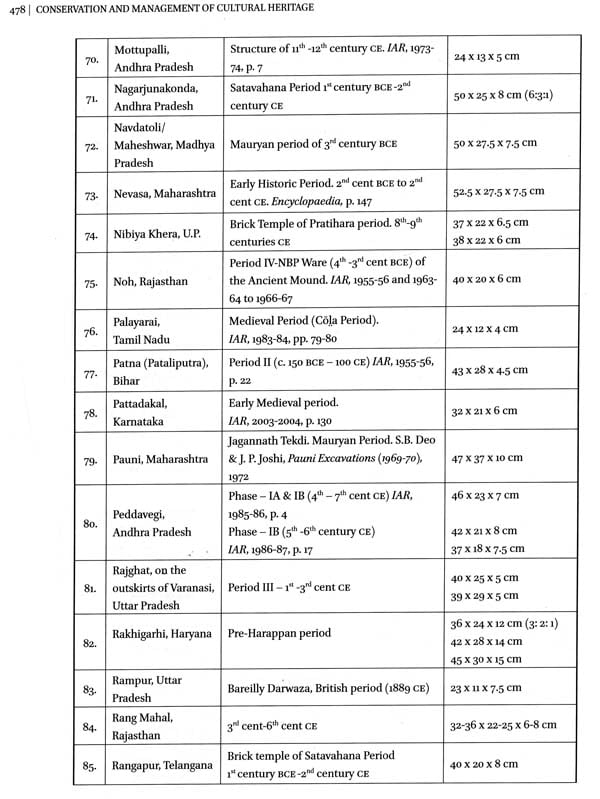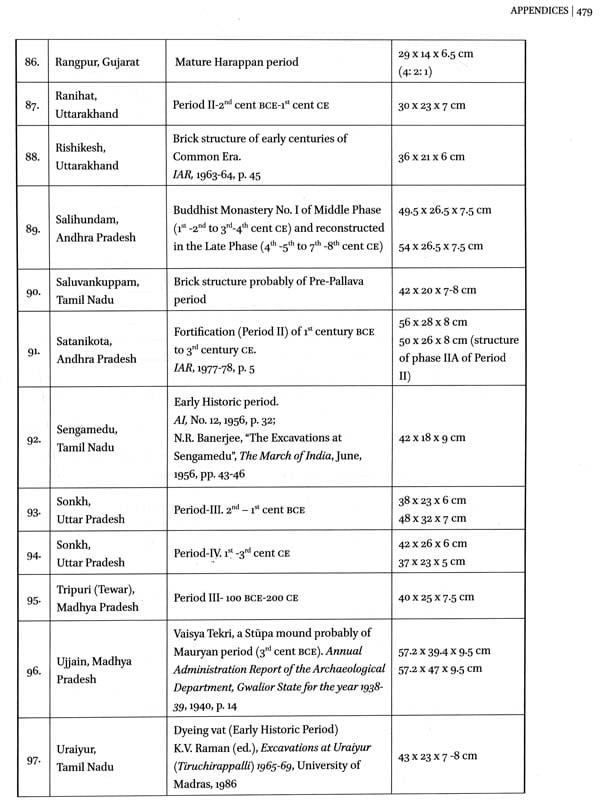
Conservation and Management of Cultural Heritage
Book Specification
| Item Code: | NAY912 |
| Author: | D. Dayalan |
| Publisher: | Aryan Books International |
| Language: | English |
| Edition: | 2019 |
| ISBN: | 9788173056369 |
| Pages: | 491 (Throughout B/W Illustrations) |
| Cover: | HARDCOVER |
| Other Details | 11.00 X 9.00 inch |
| Weight | 1.74 kg |
Book Description
The present work is a comprehensive account of management and conservation works carried out in various types of monuments and sites in India, such as the prehistoric sites and excavated remains, the rock-cut caves, monoliths and the structural heritage. It is an authentic and formal presentation of the conservation and management efforts in the monuments and sites based on the first-hand information accrued by the author. Further, the author has made a sincere attempt to collect all the relevant information from various published and unpublished reports, inspection notes, scientific investigations from various sources and archives and has tried to incorporate the details at appropriate places in this work. The book also provides in detail the international and national initiatives for management and conservation of cultural heritage, conservation principles, causes of deterioration of cultural heritage, conservation methods, structural components and ancient building materials, heritage management, various rules and regulations, charters and conventions on heritage management and other relevant topics. Photo illustrations and drawings are provided wherever required for easy understanding. The notable charters, conventions and rules and regulations on the cultural heritage and dimension of ancient bricks are given in the appendices for ready reference.
It is hoped that this book would attract the attention of not only the scholars, intellectuals, researches and students engaged in the study of heritage management and conservation, archaeology, architecture and civil engineering, but also all those who are concerned with our cultural heritage.
Being associated with the Archaeological Survey of India, he has actively participated in various explorations, excavations and conservation works. He discovered a number of archaeological sites through his intensive exploration work in various states and also participated in more than 12 excavations. He has served in Tamil Nadu, Kerala, Karnataka, Madhya Pradesh, Uttar Pradesh, Maharashtra, Gujarat and Delhi and was responsible for the management and conservation of large number of monuments and sites in the respective states.
Dr. Dayalan is an accomplished scholar and author of 12 books on various topics. Further, he has contributed more than go research papers on art, architecture, archaeology, epigraphy, numismatics, conservation and heritage management in various national and international journals. He has participated in various national and international conferences and had been the keynote speaker in many of the conferences. He has visited more than 25 foreign countries in connection with various academic ventures. He has received many awards and is also a member of several national and international academic forums.
The main objective of this book is to expound, with suitable examples, the various initiatives taken from time to time for conservation and maintenance of the monuments and the sites in India and the principles and legalities adopted for their protection. This book also deals in detail with the international and national initiatives on the management of cultural heritage, conservation principles, causes of deterioration of cultural heritage, conservation methods, structural components and ancient building materials, heritage management, various rules and regulations, charters, and conventions on heritage management and other relevant topics.
Generally speaking, the conservators in India have been following a policy of preserving the ancient edifice in as nearly the same condition as it was when it was handed down to their care, without undertaking any restoration, unless it is absolutely necessary for the structural stability of the monument as a whole. Aesthetic considerations do also sometimes necessitate the reconstruction of missing parts of the monument, but the guiding principle in this regard is the preservation of the ancient fabric of the monument with the minimum of restoration.
The present work contains a comprehensive account of conservation works carried out to various types of monuments and sites in India such as the prehistoric sites and excavated remains; the rock-cut caves, monoliths and the structural legacies. It is an authentic and formal presentation of the conservation efforts carried out in the monuments and sites based on the first-hand information accrued by the author, who had the opportunity to work in many parts of India and also involved in the management and conservation of large number of centrally protected monuments and sites there. Further, the author has made a sincere attempt to collect all the relevant information pertaining to the conservation and management of the monuments and sites from various published and unpublished reports, inspection notes, scientific investigations from various sources and archives and has tried to incorporate the details at appropriate places in this work.
In preparing this work the author has received support, encouragement and cooperation from a number of colleagues, friends and scholars in one way or the other. At the outset, the author records his deep sense of gratitude and thanks to all his colleagues throughout his service in the Archaeological Survey of India, particularly the Archaeological Engineers, the Archaeological Chemists, the Conservation Assistants and others, who are instrumental in enlarging the horizon of his knowledge on conservation and management of the ancient monuments and sites. He is immensely grateful to Prof. Peter Schalk, Uppsala University, Sweden for arranging his visit to Gamla Uppsala and a few other places to study the preservation of the burial mounds of Viking period and also to study the Rune stones in Sweden. He is also grateful to Mr. Ami Mintzer, Jerusalem for facilitating his visit to various monuments and sites in Israel. Thanks are due to Dr. Hiroshi Kanaseki, Director, Cultural Heritage Protection Cooperation Office, Asia/Pacific Cultural Centre for UNESCO (ACCU), Nara, Japan for selecting the author to attend the 'Training of Young Leaders in Cultural Heritage Protection in Asia and the Pacific' in Japan under 'International Exchange Program' of the UNESCO/Japan Funds-in-Trust for the Promotion of International Co-operation and Mutual Understanding.
Book's Contents and Sample Pages
